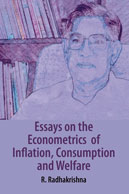Biotechnology for a Second Green Revolution in India
Socioeconomic, Political, and Public Policy Issues
FOREWORD By: Nobel Laureate Sir V. Ramakrishnan
About the Book
This book is the first of its kind in examining the role of biotechnology for reviving Indian agriculture and accelerating farmers’ incomes. It examines the empirical evidence in various agro-ecologies on already commercialised technologies, and also technologies on shelf like Bt brinjal, and herbicide tolerant maize and cotton. The political economy behind the public policies for biotechnologies, reasons for continuing controversies, and impacts of labelling policies and seed-pricing controls are examined in greater detail. In the past few years, discussion on genetically engineered crops has been particularly contentious, in the backdrop of concerns on food security and dominance of multinationals. However, dispassionate analysis of these technologies for their usefulness in Indian context has been missing. This book addresses this gap in extant literature and contains chapters by several renowned scholars from India and abroad, and can be a useful guide to students, civil society, policy makers, and researchers working on Indian agriculture.
Praise for this book
<p><strong>Advance Praise:</strong></p>
<p>This book, which addresses various aspects of the technology, will prove very useful to anyone wishing to educate themselves further about GM when they are considering the potential benefits and risks of the technology.<br />
<em>—Nobel Laureate Sir.V. Ramakrishnan, Cambridge, U.K. </em></p>
<p> </p>
<p>Tardy growth in productivity and declining farm income has been the Achilles’ heel for the planners. Bio-technology holds a promise to come out of the arduous lane. Controversies are galore and answers are only minuscule, a foggy zone that vied for a clear vision. This volume fills that void and brings together essays by top class academician on international repute covering many facets of Biotechnology, heralding second green revolution. The essays cover incisive analytical perspectives on the facets and clarify the contentious issues. This is a must read volume.<br />
<em>—Prof R.S. Deshpande, Director, Bengaluru Dr B.R. Ambedkar School of Economics, Bengaluru. </em></p>
<p> </p>
<p>Interesting combative scholarly perspectives on a vexed Socio Economic issue</p>
<p><em>—Prof. Y.K. Alagh, Professor Emeritus and Vice Chairman, Sardar Patel Institute of Economic and Social Research, Ahmedabad and Chancellor, Central University of Gujarat. And former Minister of State (Independent Charge) for Planning and Programme Implementation, Science and Technology and Power for Government of India.</em></p>
<p> </p>
<p>Evidence based research is important for a rational debate on biotechnology which is supposed to improve farmer's incomes including the small holders and provide better access of food to the poor. In this context, I compliment the authors for an excellent collection of articles which is a must read for students, researchers and policy makers.<br />
<em>—Prof. S. Mahendra Dev, Director and Vice Chancellor, Indira Gandhi Institute of Development Research, Mumbai. </em></p>
About the Author(s) / Editor(s)
<p><strong>N. Chandrasekhara Rao </strong>is currently Professor of Economics at the Institute of Economic Growth (IEG), New Delhi. Earlier, he was Faculty at the Centre for Economic and Social Studies (CESS), Hyderabad. He was Fulbright Visiting Fellow in Cornell University, Ithaca, USA, during 2010-11. His research interests include: strategy of agricultural development, value chains, technological change and innovations, labour market and poverty reduction. Earlier he published: <em>Biotechnology in Indian Agriculture: Potential, Performance and Concerns</em> (Academic Foundation, New Delhi). His latest book was: <em>Organised Retailing and Agri-Business: Implications of New Supply Chains on the Indian Farm Economy</em> (Springer India, New Delhi). Currently, he is involved in longitudinal studies on agri-food system transformation in India.</p>
<p> </p>
<p><strong>Carl E. Pray</strong> is a Distinguished Professor in the Agricultural, Food and Resource Economics Department, the School for Environmental and Biological Sciences, Rutgers, the State University of New Jersey. He earned his PhD is in Economic History from the University of Pennsylvania, Philadelphia, Pennsylvania, USA. The focus of his research is agricultural science and technology policy in China, South Asia, Africa and Latin America. Key issues of his research are: How does government research, science policy, intellectual property rights, regulations and advances in basic sciences influence the development and adoption of new agricultural technology? What are the economic and institutional impacts of new agricultural technology—especially its impact on poor farmers in Asia and Africa? Dr Pray is the President of the International Consortium for Applied Bioeconomy Research (ICABR). He is the Principal Investigator on a USAID funded project on the impact of food policy on Feed the Future countries in Africa and Asia. He recently completed a project funded by Templeton Foundation on barriers to the spread of genetically engineered food crops in China, India, and East Africa. The results of his research have been published in 80 journal articles including: Science, Nature, the <em>American Journal of Agricultural Economics, Economic Development and Cultural Change</em>, Research Policy and in 45 book chapters. Past research was funded by the Bill and Melinda Gates Foundation, the China Natural Science Foundation, the Rockefeller Foundation, the World Bank, the US Department of Agriculture, and others. </p>
<p> </p>
<p><strong>Ronald J. Herring</strong> has taught political economy and political ecology at Cornell University since 1991 as Professor of Government and International Professor of Agriculture and Rural Development. He was previously Professor of Political Science at Northwestern University. At Cornell, he has served as Director of the Mario Einaudi Center for International Studies, as the John S. Knight Professor of International Relations, Chair of the Department of Government and Director of the South Asia Program—among other posts. He has been editor of Comparative Political Studies, and remains on its editorial board, among others. Among his writings are several books including:<em> Land to the Tiller: The Political Economy of Agrarian Reform in South Asia</em> (Yale/Oxford, winner of the Edgar Graham Prize), <em>Carrots, Sticks and Ethnic Conflict: Rethinking Development Assistance </em>(with Milton Esman, University of Michigan Press); and <em>Transgenics and the Poor</em> (Routledge 2007; 2008), derived from his edited special issue of <em>The Journal of Development Studies</em>, awarded The Dudley Seers Memorial Prize (London 2008), <em>Whatever Happened to Class</em> (2008, 2016) with Rina Agarwala and <em>The Oxford Handbook of Food, Politics and Society </em>(2015). He was with Ken Roberts team leader of the project on “Contentious Knowledge: Science, Social Science and Social Movements, 2006-2009” at the Institute for the Social Sciences. Ron has been faculty advisor to Asha Cornell and worked on production and teaching of the MOOC Science and Politics of the GMO (EdX/CornellX 2016, 2017).</p>
Contributors
<p>Sangeeta Bansal</p>
<p> </p>
<p>Marnus Gouse</p>
<p> </p>
<p>Gregory D. Graff</p>
<p> </p>
<p>Guillaume Gruère</p>
<p> </p>
<p>Gal Hochman</p>
<p> </p>
<p>H. Jeyanthi</p>
<p> </p>
<p>Ashok K.R.</p>
<p> </p>
<p>Nicholas Kalaitzandonakes</p>
<p> </p>
<p>S.S. Kalamkar</p>
<p> </p>
<p>John Kruse</p>
<p> </p>
<p>Sant Kumar</p>
<p> </p>
<p>N. Lalitha</p>
<p> </p>
<p>Niti Mehta</p>
<p> </p>
<p>Latha Nagarajan</p>
<p> </p>
<p>A. Narayanamoorthy</p>
<p> </p>
<p>Anwar Naseem</p>
<p> </p>
<p>M. Prahadeeswaran</p>
<p> </p>
<p>Palaniswami Ramasundaram</p>
<p> </p>
<p>Prakash Sadashivappa</p>
<p> </p>
<p>Josily Samuel</p>
<p> </p>
<p>Deepak Shah</p>
<p> </p>
<p>Chubashini Suntharalingam</p>
<p> </p>
<p>A. Suresh</p>
<p> </p>
<p>K. Uma</p>
<p> </p>
<p>P.K. Viswanathan</p>
<p> </p>
<p>Shwetal Wankhade</p>
<p> </p>
<p>David Zilberman</p>












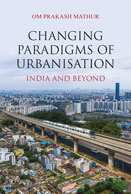
-Web-194.jpg)


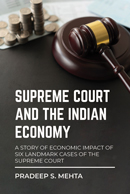








-COVER-web-194.jpg)






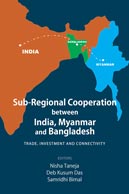






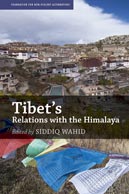






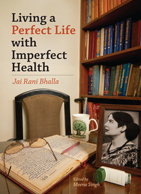












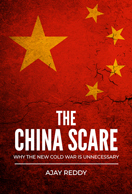
.jpg)






